#he makes me sick actually
Explore tagged Tumblr posts
Text
wait i never posted shamspeare here

alternative caption:

#click for better quality#tgaa#william shamspeare#ace attorney#my art#ace attorney fanart#he makes me sick actually
188 notes
·
View notes
Text
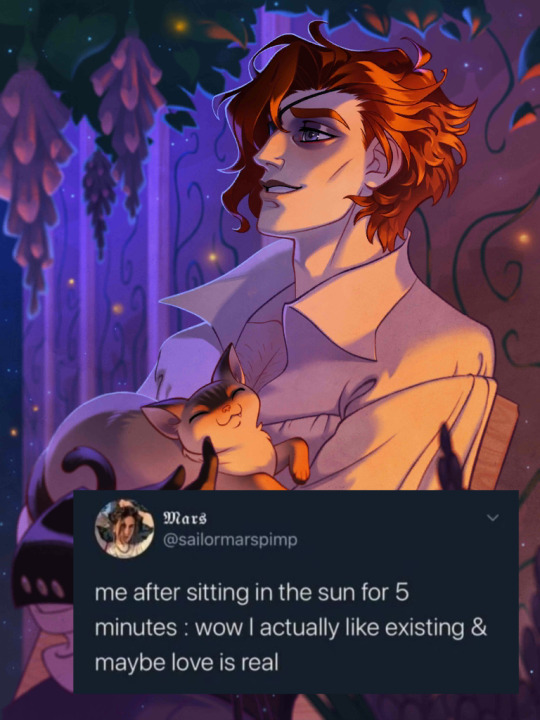
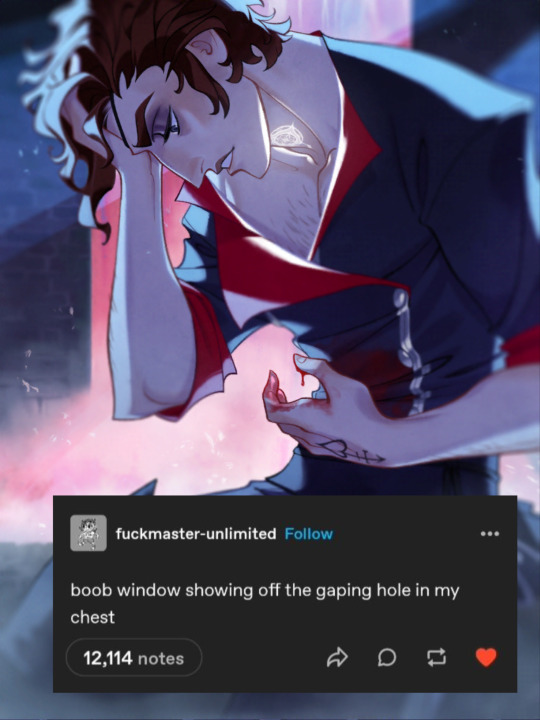
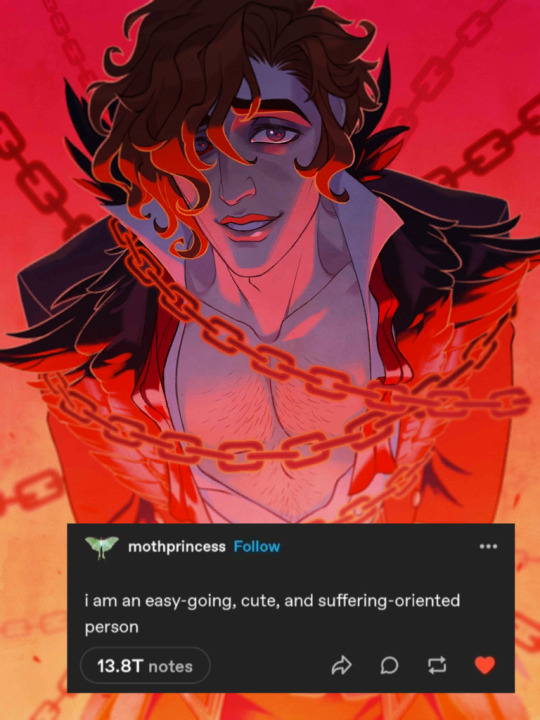
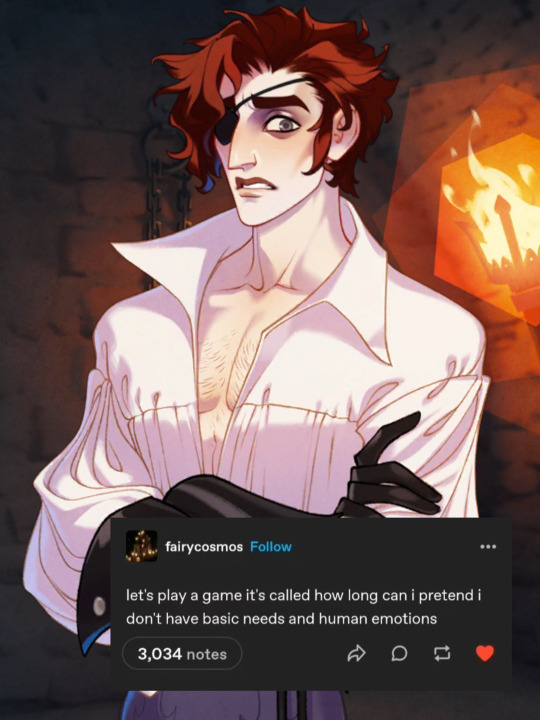
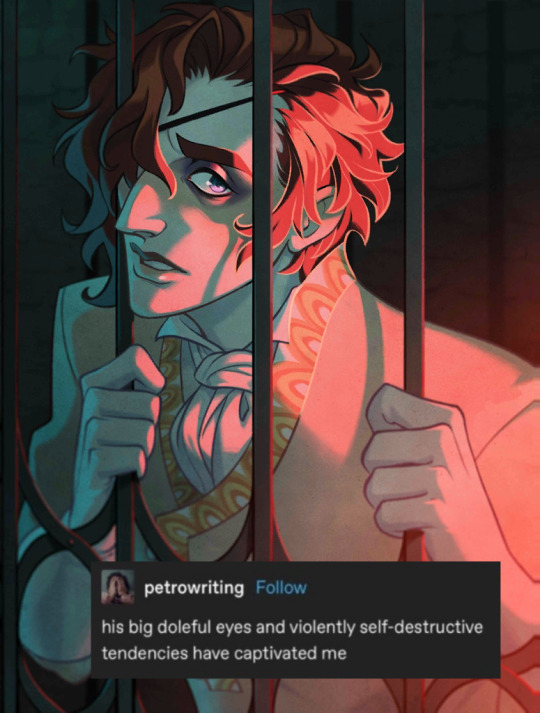
i need to kill him. waiter!! more julian devorak bleeding out images!!!
183 notes
·
View notes
Text

charm stat at debonair ‼️‼️
#WOW WHO WOULD HAVE FUCKING THOUGHT THEYD BE MY FAVORITES. THIS TOTALLY WASNT EXPECTED. NOT AT ALL.#i have lots of persona art its just uncolored dw#doing the shujin trio next i miss them so bad☹️☹️ also i need pegoryu content to stay sane and alive#anyway they're like. actually fucking insane 💀💀💀💀#like lawlight level toxic yaoi its so absurd#like i was like damn soukoku is intense WHO ARE THESE FREAKS#WHY THE FUCK ARE THEY LIKE THIS.#ACTUALLY FUCKING INSANE. LIKE EXTREMELY MENTAL AND SICK IN THE HEAD.#AKECHI IS A FUCKING PSYCHOPATH#god they actually make me so fucking AUAUAUUUUUUUUUGHHHHHHH#i NEED to finish royal shidos palace GUTTED ME#they were initially so funny to me bc right off the bat you can tell how much of a FREAK akechi is just paraphrasing hegel#and being so ferevently obsessed with ren its like bro why is this guy straightup dickriding us for telling him we like our eggs well done#ANYWAY their dynamic always felt so sad to me bc it was akechi just desperately clawing for what ren had the entire time ☹️#and the more he realized how worthless he was in comparison the more mentally unhinged he became until he actually broke#me when the trope is “the love was there but it wasn't enough to save them” 😭😭😭😭😭😭😭 (FUCKING DEVASTATING)#ermmm anyway yea they're neat. ig#persona 5#persona 5 royal#p5#p5r#ren amamiya#akira kurusu#goro akechi#shuake#akeshu#lotus draws
4K notes
·
View notes
Text

when the 𝑓(𝑥) = 𝑎𝑥³ + 𝑏𝑥² + 𝑐𝑥 + 𝑑 😋
#bloodborne#micolash host of the nightmare#decadentart#Hello Again Ugly. Ew#actual title of piece is ‘function’#nothing rlly special just kinda playing around . this wasnt the original idea. was originally gonna have a bit more . Moths#saving that for latterrr :)#For those curious#it tooks mw like. 20 mins to get a good looking graph on demos. i hate math. UAGH#working on more art of this guy btw. he really makes me sick#this is kind of a quick scribble tbhh cuz . uah. inspiration struck hard randomly
2K notes
·
View notes
Text

you weren't born an angry child, anakin, but then you never stopped being one

also posting the sketch
1K notes
·
View notes
Text

Your highness… I don’t feel so good
#I was literally getting the same feeling I got watching Jimmy’s empires 2 when I was watching scars stream from 2 days ago…#and then doc said THAT. full body chills. thanks#hermitcraft#hermitcraft s10#docm77#docm77 skyblock#hermitcraft skyblock#idk how to tag that man#art escapades#jimmy solidarity#solidaritygaming#empires smp#empires s2#sheriff jimmy#tumble town#uhhhh idk what else to tag hopefully that covers it#idk… something about scar and Cleo and Joe all teasing him relentless despite the fact that he was obviously Actually upset#(‘I’m sure it’s actually fine but just. the vibes of someone who’s sick of getting messed with getting relentlessly messed with. yknow)#it makes me feel vaguely sick#again I’m sure they’re fine but idk man he sounded so mad#so naturally. whatever this is happened in my brain#I’m normal I just needed to get this out of my system <3#there’s some really interesting parallels happening here that I can’t quite put into worse#words*#so I put it into images instead… hopefully you’re getting my brain waves
2K notes
·
View notes
Text
There are two things that Damian knows that he knows Father doesn’t.
He has an older brother
He was dead
(And a secret third thing: Damian was glad he was dead. They did not get along.)
Well. No, correction, they were two things that Damian knew that Father didn't. Past tense. Strange magic swirled through the air and created a mirage before his eyes, and immediately a scowl forms across his face.
The mirage shifts and shimmers like the light hitting a slowly turning prism, and then it settles into a memory. One that Damian does not recall. Like looking into a tv screen, it shows, faintly, a room, with most of the magic going into the image of a crib.
His mother was standing on one side, and next to her, standing on his tiptoes was a small five year old boy looking up at her. With dark hair and skin that was only few shades lighter brown than Damian's, the little boy's resemblance to Damian was undeniable.
However, his eyes were blue. Not green. Damian's scowl deepens, and he sinks back. "Danyal." He mutters, and feels eyes turn on to him.
Danyal Al Ghul. Damian's older brother. A prodigal swordsman like Damian, and five years his senior. He'd be fifteen if he was still alive. His memory of the last time he saw his brother was still clear in his mind.
(A sword to Danyal's neck. Stars were glittering through his window. Damian was five, Danyal ten. He is not sure why Danyal had snuck into his room, all he remembers is hearing a sound and on instinct reaching for his sword.)
(His brother had intercepted easily. But had not shoved the sword away. Moonlight hit his blue eyes, and Damian remembers seeing the pupils shrink to let the light in. His eyes looked almost silver.)
(His brother bares his teeth at him. Damian wants to slice his neck more than anything, and he bares his teeth back. "Good." Danyal says, his voice low in a hiss, "Your reflexes are good, little brother.")
("Of course they are," Damian remembers snarling, and presses the sword closer. But it does not budge. "I am an Al Ghul.")
(Something unrecognizable passes through his brother's eyes, and his mouth twists into something like a smile. "I know." He says, and tilts his head downwards at him. "And you will be great.")
(His brother shoves the sword back, causing Damian to stumble. And like the wind, he is gone.)
(The next morning, he goes on a mission with mother and a few others. Mother is the only one to return with Danyal's sword, and a red-eyed look in her eyes. Damian does not mourn. Now there's only one of them.)
"Momma." The little Danyal-mirage speaks, a furrow between his childlike brows as mother lowers a bundle into the crib. His blue eyes watch her, and lifts onto his toes to peer into the crib as she sets the baby down. "Who is this?"
Their mother's hand comes to rest along his back. "This is Damian, my son." She murmurs, voice low. "He is your little brother. Protect him well."
Damian scoffs internally -- not likely. He remembers every spar he ever had with Danyal, every harsh word and insult. His pushing, pushing, pushing for Damian to get up. To try again. Do it again. The only kindness he ever showed him was when his fingers bled. And even that was harsh, firm. Rolling gauze around his wrist and scolding him, telling him how to wield his weapon better.
(It was the same as everyone else, but somehow it hurt worse coming from his own brother.)
But he watches his older brother's youngest self tilt his head to the side, and then reach his chubby hand through the crib's bars. He runs small, blunt fingers over the baby's arm, and the baby jerks. Through the crib's bars, Damian sees himself grab Danyal's fingers.
And he scowls even deeper.
And Danyal's eyes... widen. He lets out a little gasp, and a small smile Damian's never seen him wear tilts at the corner of his mouth as he looks up at their mother. "Mother," he whispers, "he grabbed me!"
Damian... his scowl falters, for a moment.
He doesn't wait for a response, he looks back to the baby with sparking eyes. His expression melts like sugar as he bounces the finger being gripped tight by the small hand. "Hello, little brother." His brother says, voice its of usual firmness, but there's more fondness underlying it than Damian's ever heard. "My name is Danyal."
The mirage shifts before Damian can comprehend his older brother's voice. It shows the crib again, appearing as if a few days had passed. There is night lilting through the nearby window, and a creek of the door. The baby doesn't stir.
Danyal sneaks in, still wearing his training clothes and a sword strapped to his side. Damian's scowl returns, watching him creep over to the crib. Of course -- the last night he saw his brother wasn't the only time he'd snuck into his room.
Would he go so low as to attack an infant? Damian wonders, watching his brother cross the room to his crib. But while his fingers rest against the hilt, they never curl to unsheathe.
His brother peers into the crib again, and there it is again, that smile wider in the corner of his mouth. It's not a full one, but its as uninhibited as it gets. Dripping honey-sweet with awe. "You are so tiny." Danyal whispers, and pokes a finger back through the crib. It wriggles, then pokes Damian's cheek gently. "Was I as small as you when mother gave birth to me?"
There is no response from the baby. Not a coherent one anyways, the little thing snuffles and turns his head, mouth open to latch. Danyal stills, his eyes grow ever wider again.
Danyal says nothing else, just rests his cheek against the crib and watches the baby sleep in silence. The affection never leaves his young face.
Damian feels unsettled. Off-foot. This Danyal is foreign to him... He wonders what happened to have changed his brother's mind on him.
There's a scuffle, quiet, but there. Danyal picks up on it just as Damian does, and his head pricks up like a deer, head already turning away from the crib. The affection leaves his face, falling away like water into something serious. His blade is already slightly unsheathed.
Two assassins, belonging to grandfather, burst out of the shadows. Their swords swinging into the air and ready to strike.
Danyal kills them both, his back to the crib. It's not without struggle, and when the two assassins lay dead on the floor, the baby is wailing at the top of his lungs. Danyal has a laceration cleaving down diagonal of his cheek. It's close to his eye, just barely missed blinding him.
Damian never knew how he got that scar. He does now. (He doesn't know how to feel about it.)
His brother clutches his bleeding face, sheathing his sword as tears well up onto his face. But he turns towards the crib, and hurries over. "You're okay, you're okay, you're okay." He hushes rapidly, the League-drilled seriousness fallen away to reveal a panic-stricken five year old. He sticks one hand into the crib, the one not clutching anything, and grabs little Damian's hand.
Their mother comes bursting in that moment, and Danyal turns his head towards her. "Mother." He says, his voice cracks un-wantingly. Their mother steps over the bodies of the assassins easily. "They tried to kill Damian."
"But they did not." Talias says, kneeling down next to the crib to inspect Danyal's face and Damian's well-being. When she finds nothing of concern beyond the injury, she continues. "You killed them before they could, Danyal. Well done."
The mirage of his brother nods, his eyes teary and red.
Damian... is discomfited. he never thought Danyal would kill assassins for him. He would have thought his brother would sooner look the other way. The mirage shifts again, and it quickly shows time passing.
Danyal sits in Damian's nursery every night, after that. He lays at the foot of the crib with his sword, a pillow and a blanket with him. Some nights there is nothing but peace -- or as close to peace as a baby could achieve -- and some days assassins break in.
Danyal kills each one.
The mirage shifts again, and it shows more memories of Danyal interacting with Damian during his youth too young for him to remember. His first steps, his first words.
"Danya." The small toddler of Damian says, arms reaching for Danyal.
A frown curls across Danyal's face, and pulls Damian into his lap. "No, no, little brother." He scolds, voice firm but.. softer. "It is Danyal, Damian. Danyal."
"Danya!"
Damian's brother sighs, but there is that same-small tilt at the corner of his mouth. A glimmer in his eyes. A glimmer... that Damian is finding he recognizes.
(He always thought his brother got that look in his eyes when he was mocking him. Was he wrong?)
The mirage shifts again, and this time it shows only mother and Danyal, alone. Danyal is older, taller. Seven, if Damian had to guess. Mother has a stern look on her face, her hands tight on his shoulders. "Damian will be starting training soon, my son."
Ah, then close to eight then. Training starts, always, at three years old. He watches Danyal nod, his expression mimicking their mother's. His arms are folded, always folded, behind his back, always neat.
"You can no longer have the relationship with your brother as you did before." Mother says.
Danyal's expression... falters. It shifts, it fluctuates. He looks surprised, thrown off. Like he isn't quite sure he heard what mother just said. His brows furrow. "What... do you mean, mother?"
"I mean what I said, Danyal." Mother says, stern, "Ra's will be keeping a closer eye on Damian now that he is of age to begin his training. He will not like if he sees you both getting along."
"I am sorry, my child. But your relationship with Damian ends here. You are rivals now, not brothers." In a cruel form a gentleness, mother raises her hand and tucks a stray curl out of Danyal's face.
Of course. Damian never had a relationship with his brother because of Grandfather. Of course. No, he's not feeling a little bitter. No. There's not an inner child that still, like a candleflame, wishes that he'd had a bond with his only flesh and blood.
Danyal is dead now. So it's not like it matters. He's happy about this.
Danyal frowns, and he steps back. He looks lost in thought. "We are still brothers, mother," he says, argues, and looks up to meet mother's eyes. "Let me train him, I will make sure he gets the skill he needs. If we must be rivals, then I will teach him how to defeat me. If he can defeat me, he can defeat anybody."
Their mother, and Damian, both blink in unison. Then mother smiles something sharp, calculated. She folds her hands behind her back. "Then do it. But you will make him hate you."
"...So be it."
Damian.... Damian is silent. His world axis has been tilted on its head. He is sliding, and sliding, and sliding down. Spinning. Many things click into place at once.
More memories from the mirage show. It shows Danyal training Damian. It shows their arguing, their bickering. It shows Danyal going to their mother to praise Damian and his skills, how fast he is picking up on the sword. How one day he will surpass even him.
It shows Danyal sitting outside Damian's bedroom door every night, listening in for anyone who dares to break in. His knees drawn to his chest, his sword at his side. Sometimes he sneaks in, sword drawn, when he hears a sound.
Some nights, Damian wakes up. He remembers those nights. Danyal standing over his bed with his sword unsheathed and tight at his side. He remembers the instant terror as he immediately reached for his own weapon.
His brother always scolded him for his lack of vigilance. That had he been anyone else, Damian would have had his neck cut. He would've been dead already. It only made Damian's hatred of him grow.
But he understands now. Because there were assassins in the room that Damian, four years old, three, did not notice. Not until later. He always assumed the attacks on him after Danyal's death had been because now there was a new heir to target.
It had been the only lesson he'd been even somewhat grateful for.
Then finally the mirage shimmers, and it shows Danyal, ten years old, in one of the training rooms, mid-spar with Mother. It's fast, sharp, impressive and like a blur. Damian is unsure if at ten which one of them was the better swordsman. Some of the assassins who have never met Danyal said Damian was, but the ones who had said it was Danyal. He'll never know.
In a lull in the fight, when their swords are crossed, mother speaks. "Ra's wants you and Damian to fight." She says, teeth grit into a deep scowl. The cross breaks and Danyal jumps back, he frowns.
"We have fought, mother." He says, and dives in first, swinging for mother's feet. Mother dodges, and slices at his arm. He swerves out of the way, twisting on his feet like a dance. "We are always fighting, doesn't he see our spars?"
"Not a spar like that, my son." Mother says, a snarl in her voice. She lunges, and Danyal blocks her blade. "A fight to the death. Father has grown tired of having two heirs."
That gets Danyal's attention -- or, more accurately, it distracts it. His eyes widen, and his sword lowers for a single moment. A mistake. "What?" Is all he gets out before mother has him on his back, her blade pressed to his throat.
He freezes. As does Damian. Danyal's brows furrow, then unfurrow, only to knot up again. "Mother, what do you mean a fight to the death?" He flips to his feet when mother removes the sword. She walks over to grab her water.
"Must I repeat myself, Danyal?" Mother snaps, rubbing her forehead before swigging from her canteen. "Father wants to find out which one of you is the stronger heir, and so you will fight to the death after your training in a few days."
Danyal's tan face loses a shade of color, he looks ashy. "There must be some mistake!" He exclaims, his arms gesturing out as he peers around mother. "There is a five year disparity between us, Damian has only just started training two years ago. It would be an unfair fight!"
"Do you think me unaware?" Mother whirls on him, and there is a grief-stricken look on her face. Like she is already mourning Damian's death. Damian feels ill. "Your skill is far beyond what Damian can accomplish right now, and there is nothing that I say that can convince Father otherwise."
Danyal wears an expression like he is scrambling for answers. A white knuckle grip on his weapon. There is a long silence, and his lower lip curls up. His throat bobs, he swallows. "Is there really nothing we can do?"
Mother makes a frustrated sound, pushing her loose hairs out of her face. "Not unless Father changes his mind, or I send one of you away. But Father would surely send someone to look for you or Damian."
"What if one of us faked our death?"
Mother stills. As does Damian. No, he thinks, stiff as a rod, no way. These mirages were lying, nothing but figments of an imagination. Of some quiet what-if that Damian had not yet stomped out.
Mother's expression shifts, and then turns contemplative. Danyal notices, and keeps pushing, he looks as hopeful as he could get beyond his usual unwavering, stone-like expression. "One of us could go to father--"
"No." Mother cuts off, voice sharp. Danyal wilts, confusion flittering across his face. Damian, from the corner of his eye, sees Father tense as stone. His white-slit eyes have not left the mirage. Nobody's has.
"Father will undoubtedly check there first, it would not be a good idea. You or Damian will have to go somewhere where he would not think to look. Someone unaffiliated with the League."
Danyal's face falls, shutters, and then closes up again into stone. Mother begins to pace, and Danyal's blue eyes follow her. "So a stranger?" He asks, and there is disgust lilting into his voice.
Mother nods, and she looks just as offput as Danyal.
The mirage of Damian's brother rolls his shoulders back. "Then I will do it, mother." He says, voice unwavering. There is a stubborn note behind it all, one that Damian recognizes. "I will fake my death, and Damian will stay here."
Mother's eyes turn sharp on him, and she stops in her spot. She pivots. "Are you sure?" She asks, eyebrow raising, "There is a chance you will never meet your Father if you leave. Nor will you see I or Damian again, if you do this."
Something like fear flickers across Danyal's face, eyes widening momentarily -- as if that very thought had not crossed his mind. But then it smooths over to sharp determination. He nods. "It would be the same for Damian if it was him instead. I will do it, Mother."
Damian feels ill again. Father has a strong set in his jaw, his teeth grinding.
Mother stares at Danyal, and then her expression softens. And like before, it is grieving. "In a few days time, I and another member of the League will be going on a mission to the American States. I will tell Father that you will accompany me, once there we will dispose of the other member and then orchestrate your death."
The American States. Danyal was here, in the country. He was out there somewhere -- but no this was fake. It had to be. Danyal was dead. A fool who got himself killed on a mission with mother and left the title of Heir to Damian.
Or maybe it had been his plan all along. His and mother's both.
...Was mother ever going to tell him?
The mirage of Danyal nods, sharp. Understanding. There is a gleam in his eyes that is not pride, it is tears. And when Mother leaves the room and leaves him alone, the stone-like expression on his face crumbles and falls.
His brother, ten years old, curls up his lip in an ugly way. It wobbles as the tears in his eyes do, and he brings up his hand to slam it over his mouth. And sinks to his knees, a yell-like sob muffled behind the skin.
His brother, ten years old, looks smaller than Damian remembers him being, and cries.
Damian has never seen Danyal cry. Not once in the mirage of memories, nor in his own.
The memory holds for a minute, and then disappears. And no new one shows up. The magic is gone, and it leaves a silence in its wake. Heavy, staticky, and full of revelations.
So there are two things that Damian knows that his Father now knows too.
He has an older brother
His older brother is alive.
(And a new secret third thing: Damian wasn't sure how to feel about it.)
#dpxdc#dp x dc#dp x dc crossover#danny fenton is not the ghost king#dp x dc prompt#dpxdc prompt#i promise this is a prompt#it just got very long#danyal al ghul au#my take on a danyal al ghul au#older brother danny#dpdc#dpxdc crossover#i know the usual gist is that danyal al ghul is a better knife thrower than he is a swordsman but hey#consider: phantom has a sword when he fights ghosts. how sick is that?#his ghost form having allusions to the LoA. its not obvious but its there#did i make danny brown skinned? yeah. because him being white or not is irrelevant to me and i wanted to make him darker skinned#thinking about the angst of bruce seeing his firstborn son going “i could stay with father!” and then said child being visibly crushed#when told no. and that he may never see his father ever. actually. if he fakes his death. and still doing it anyways for damian's sake#danny loves his little brother he just shows it in an unorthodox way. some of it is not his fault#also danny being an absolute grump in amity park is very funny to me. he's an arrogant little assassin child in AP who is only here for#his little brother's sake and safety. he loves his brother but that doesnt stop him from being an arrogant little brat#gremlin assassin child danny is so funny#i know this is very ironic for me to post after posting my thoughts on danyal al ghul aus and their missed potential#but actually this prompt is what spurred that post into creation in the first place actually.#because i was thinking about this au and then went “oh hey you know whats funny--” and then i#thought about it too much to the point where i had to make a post talking about it#tried to find a balance between danny being mature for his age and also still being a kid#like yeah he’s a trained assassin and has killed but also he’s a 10yo boy about to be separated - Assumingly permanently- from his family
3K notes
·
View notes
Text
It's you!
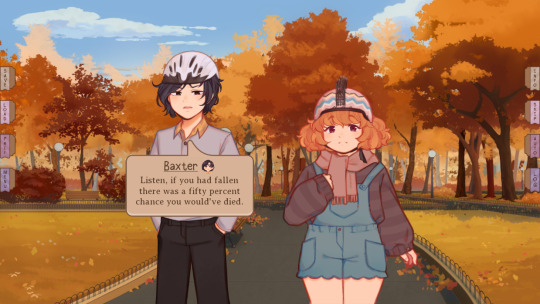

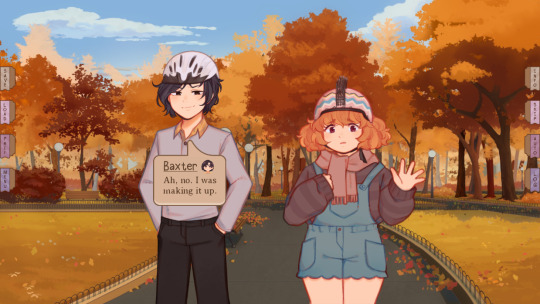
Despite everything...
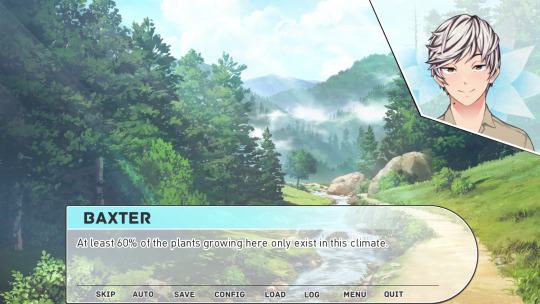



...it's still you <3

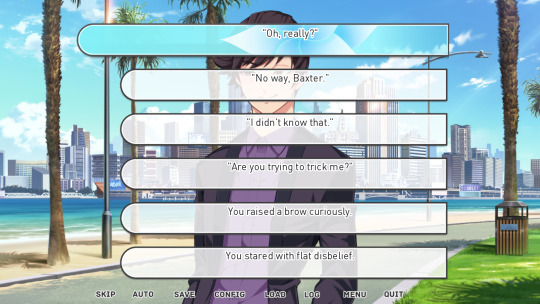

#I haven't replayed in so long and he actually makes me cry just thinking about him something is wrong with me#I can't do this anymore#Just the way he still holds onto innocent things from the childhood he never really got to have it makes me sick#gb patch games#our life#olba#olnf#our life beginnings & always#our life now and forever#baxter ward#Tamarack Baumann
472 notes
·
View notes
Text

My dearly beloved…re2 leon…
#art#my art#fanart#digital art#fandom#resident evil#leon kennedy#leon s kennedy#resident evil fanart#re2 remake#re2 leon#re2 fanart#doodle#drawing#he’s just so stupid#just a dude#he looks like a sad wet dog#give him a break please#he’s so cute it actually makes me sick#I am so normal
888 notes
·
View notes
Text

" Afraid to Start / Got your heart in a Headlock "
I'm gonna go insane I have been hyperfocused on this Drawing for a full day it's getting too crazy here.
THIS IS NOT A SHIP POST. I DON'T SHIP THEM. I KNOW THE LYRICS CAN BE INTERPRETED AS SUCH OR SOMETHING BUT THIS IS NOT A SHIP POST.
(Some stuff under the cut eek)
The Song, because I'm Insane about it
Shoutout to my friend Dora ( @dorathefake ) who made me aware I was totally ripping her off because we found the SAME pinterest Base (I LOST THE OG IMAGE I'M SOBBING IF I FIND THE LINK AGAIN I WILL POST IT HERE) and have the Same Brain. So go follow her the Art is Scrumptious <3
As a reward for being Nosey you can have a WIP picture where I put a special Guest in the box

Kay thanks bye, I love you! :)
#Working on this made me a little sick though like it was making me ACTUALLY sad#But it's like my Wife always says “Every Hatchetfield Artist has their Ted In A Box Drawing”#And by God he was right.#Glad to finally join the ranks and it's only been about... 4 years.. maybe more......#Time for me to dissapear off of the internet for Four Months again Goodbye!! (/j... Probably)#;moth art#hatchetfield#hatchetverse#starkid#ted spankoffski#ted tgwdlm#tinky#tinky npmd#tinky starkid#starkid fanart#bastards box#ted spankoffski fanart#tinky fanart#Spotify
381 notes
·
View notes
Text








I don't know why I'm still doing this. - What, drinking? No, hiding it in your footlocker. I'm a captain, for Chrissake.
Dick Winters & Lewis Nixon in BAND OF BROTHERS (2001) ↳ Part Five: Crossroads
#bobedit#bandofbrothersedit#hbowaredit#tvedit#dailyflicks#tvandfilm#hbo war#band of brothers#dick winters#lewis nixon#winnix#part five: crossroads#alcoholism tw#drinking tw#this scene..................#the way they both fall back into humor lest they show their true emotions. they're so in love it makes me sick#and this scene is interesting bc it's the first time we see that dick might actually have a problem with nix's drinking#from a reg media analysis pov it's to demonstrate their moral differences/upbringing and how war brought together these 2 vastly diff men#from an rpfer pov it's to demonstrate how in loooooove dick is with nix and how he deeply cares for himmmmm
223 notes
·
View notes
Text
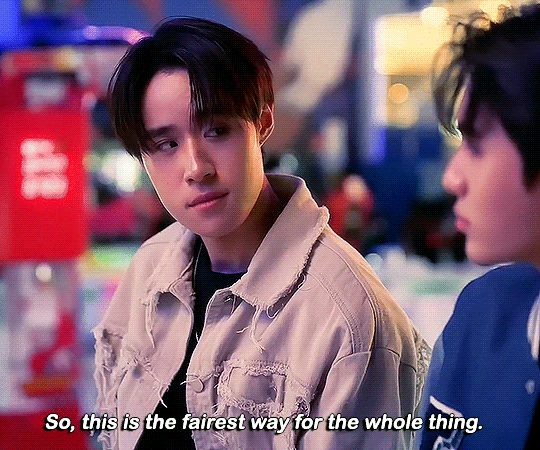
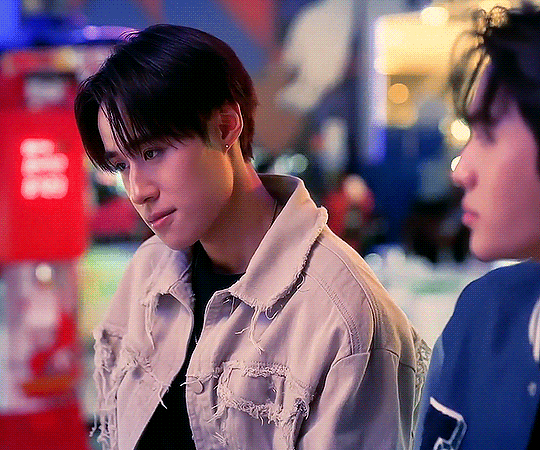
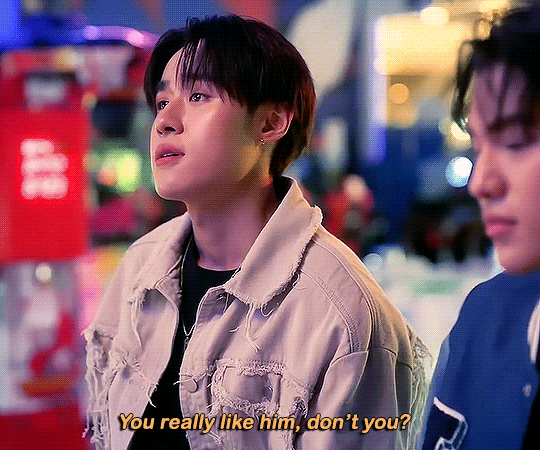


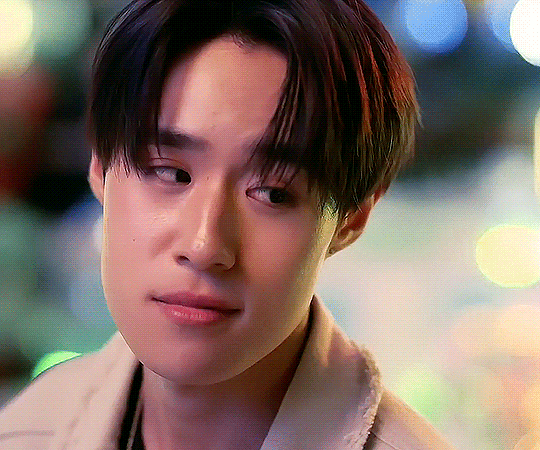

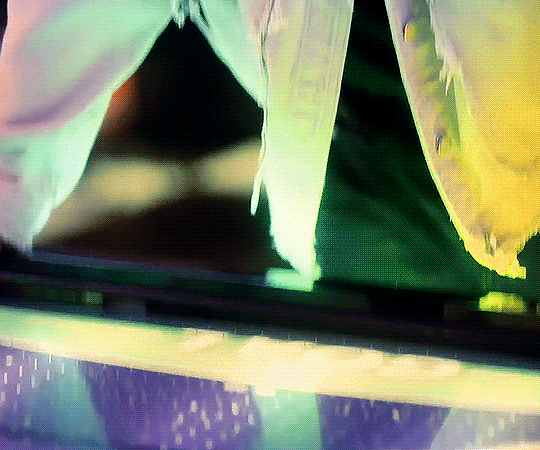
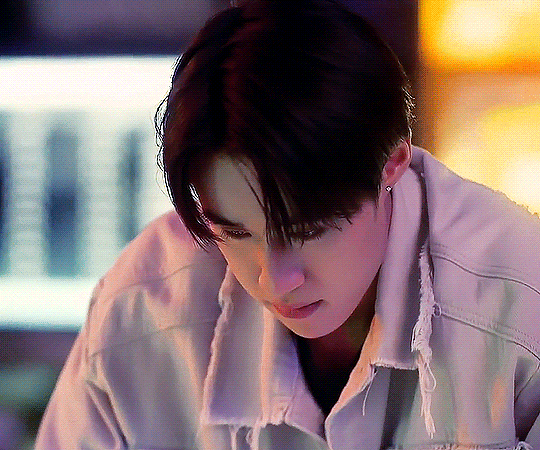
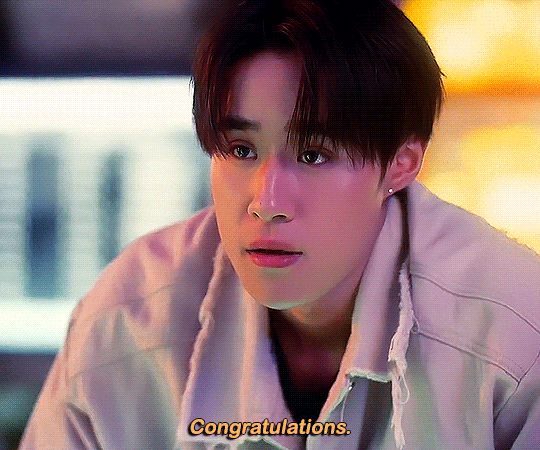

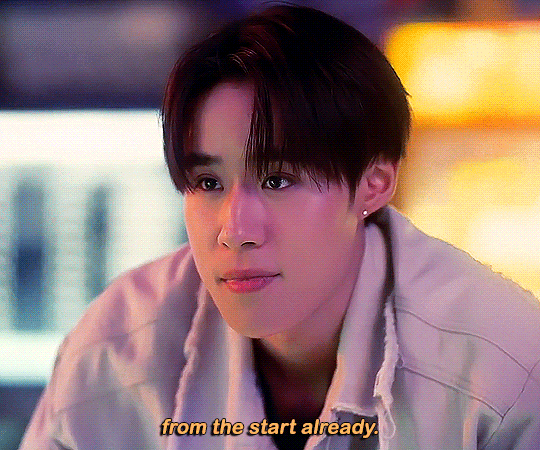
From spending time with him, I've realized he also likes you.
THAMEPO | EP. 8
#thamepo#thamepo the series#thame po#fivearchive#userpharawee#userrlana#userbon#userjamiec#userrain#kirustag#rinblr#asianlgbtdrama#uservid#userrzey#userfrantaglia#watch jun give up in real time!#the acting here was really really good esp in the first 3 gifs you can literally see him realize he has to lie/give up#i am officially starting my hashtag give nut a lead role campaign now that the jun arc is over#(like i havent been doing that for the last 5 weeks?)#the way tumblr compressed these is actually making me SICK TO MY STOMACHHHHH they do NOT look like that but i closed the file already#cant fix it sorry. lmao
212 notes
·
View notes
Text
Whatever you do don't think about post-book darry accidentally setting out too many plates after a real long day and his mind is just utterly exhausted. Everyone looking at him all confused because they didn't have that many people left and soda having to softly remind him that Johnny and dally weren't alive. Weren't coming back. Darry just softly responding with 'oh..sorry' as he remembers that they weren't coming back.
#the outsiders#the outsiders musical#the outsiders broadway#darry curtis#two bit mathews#sodapop curtis#johnny cade#dally winston#he makes me so sick actually#like darry on multiple occasions doing this because his way of forgetting was overworking himself#he overworks himself so bad that for a moment he forgets about everything that happened.#and soda having to ground him.#the first time it happened with ponyboy there pony just fully breaks down#darry feeling so bad because hes supposed to stay grounded but he just can’t#you can rip darry caring about the two of them out of my cold dead hands#bc darry did care about johnny and dal so much#Godd im sixk#the outsiders hcs#the outsiders headcanons#the outsiders fanfiction#trust this is going in my fic
352 notes
·
View notes
Text

my sweet old man who is genuinely too kind for the world he lives in :(
#decadentart#bloodborne#retired hunter djura#he makes me so sick hes actually so fucking sweet when i think about it#Yes i gave her a skirt. whenever i draw the people of old yharnam i slways give tbem little accesories :)#the colors are a bit wonky because i intially drew it Reeaaalllyy Dark also idk i picked out some weird ass colors for the pallete#every time you shoot him off that tower an angel looses its wings#legimitately got upset when i killed him for his set#made sure he didnt fall to his death though. thats called bullying when you knock him off btw#also yeah i hc that the beasts are chill w him . and slso he knows all of their names#first maintagged art on this blog. shudders. i hope the fans dont eat me alive im serious you guys scare me#the halo was necessary btw#so anxious…. SEND IT! RAHHH!!! MY AUTISM BLAST GO!
3K notes
·
View notes
Text
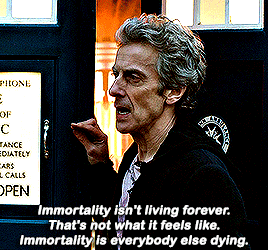
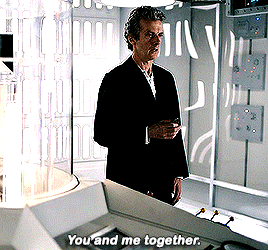
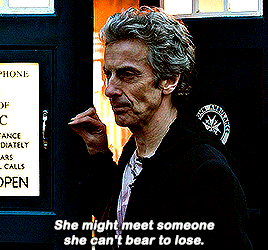
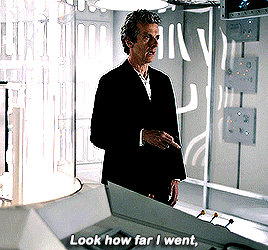
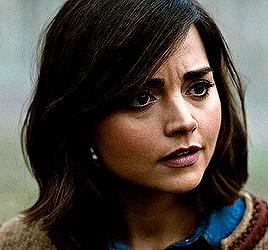
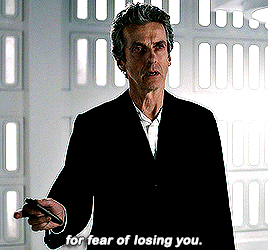
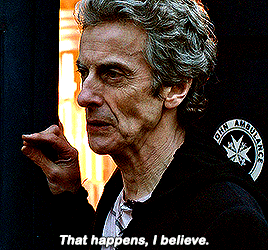

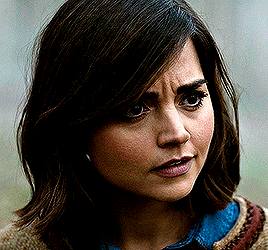
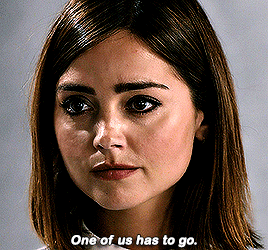
The Girl Who Died // Hell Bent
#dwedit#doctor who#usertennant#userveronika#userteri#twelfth doctor#clara oswald#doctor x clara#twelveclara#*#I'M SICK OF LOSING PEOPLE. LOOK AT YOU WITH YOUR EYES AND YOUR NEVER GIVING UP AND YOUR ANGER AND YOUR KINDNESS.#ONE DAY THE MEMORY OF THAT WILL HURT SO MUCH THAT I WON'T BE ABLE TO BREATHE AND I'LL DO WHAT I ALWAYS DO.#I'LL GET IN MY BOX AND I'LL RUN AND I'LL RUN IN CASE ALL THE PAIN EVER CATCHES UP. AND EVERY PLACE I GO IT WILL BE THERE.#anyway idk if this makes sense outside of my head but the journey between like#she might meet someone she can't bear to lose -> gives her a second repair kit so she can make someone else immortal too ->#he can't bear to lose clara -> he brings her back from the dead which makes her functionally immortal ->#look how far i went for fear of losing you#ok actually i need to make a full parallel set. someone remind me to do that
1K notes
·
View notes
Text
patience being tested. being forced by a bizarre unfortunate situation to adhere to university requirement technicality by taking this simple basic elementary "introduction to environmental history" class.
this class is from facilitators/program which do, like, "history of the American frontier" or "history of fishing and hunting" and still basically subscribe to that old-school twentieth-century idealization and celebration of characters like Teddy Roosevelt and reverence for a mythical arc-of-history-bent-towards-justice narrative of the often-clumsy but ultimately-benevolent US federal government and its mission to "save nature" through the miracle of "sustained yield," while heroic federal land management agencies and "heritage" institutions lead to way, staffed by exceptional individuals (appeals to nostalgia for the frontier and an imagined landscape of the American West; ego-stroking appeals to flattering self-image that center the environmentalist or academic). where they invoke, y'know, ideas like "ecology is important because don't you enjoy cross-country skiing in The Woods with your niece and nephew? don't you like hunting and fishing?" which makes it feel like a time capsule of appeals and discourses from the 1970s. and it invokes concept of "untouched wilderness" (while eliding scale of historical Indigenous environmental relationships and current ongoing colonial violence/extractivism). but just ever-so-slightly updated with a little bit of chic twenty-first-century flair like a superficial land acknowledgement or a reference to "labor histories" or "history from below," which is extra aggravating when the old ideologies/institutions are still in power but they're muddying the water and diluting the language/frameworks (it's been strange, watching words like "multispecies" and "Anthropocene" over the years slowly but surely show-up on the posters, fliers, course descriptions, by now even appearing adjacent to the agri-business and resource extraction feeder programs, like a recuperation or appropriation.) even from a humanities angle, it's still, they're talking at me like "You probably didn't know this, but environmental history is actually pretty entangled with political and social events. In fact, we can synthesize sources and glean environmental info from wacky places like workers' rolls in factories, ship's logs, and poetry from the era." and i'm nodding like YEP.
the first homework assignment is respond to this: "Define and describe 'the Anthropocene'. Do you think 'the Anthropocene' is a useful concept? Why or why not?" Respond in 300 words.
so for fun, right now in class, going to see how fast i can pull up discussion of Anthropocene-as-concept solely from my old posts on this microblogging site.
---
ok, found some
---
I think that the danger in any universal narrative or epoch or principle is exactly that it can itself become a colonizing force. [...] I’m suspicious of the Anthropocene as concept for the very reason that it subsumes so many peoples, nations, histories, geographies, political orders. For that reason, I think ideas like the Anthropocene can be a useful short-hand for a cluster of tangible things going on with the Earth at the moment, but we have to be very careful about how fluid and dynamic ideas become concretized into hegemonic principles in the hands of researchers, policymakers, and politicians. There’s so much diversity in histories and experiences and environmental realities even between relatively linked geographies here in Canada [...]. Imagine what happens when we try to do that on a global scale - and a lot of euro-western Anthropocene, climate change and resilience research risks doing that - eliding local specificities and appropriating knowledge to serve a broader euro-western narrative without attending to the inherent colonial and imperial realities of science and policy processes, or even attending to the ways that colonial capitalist expansion has created these environmental crises to begin with. While we, as a collective humanity, are struggling with the realities of the Anthropocene, it is dangerous to erase the specific histories, power-relations, political orders that created the crisis to begin with. So, I’m glad that a robust critique of the Anthropocene as a concept is emerging.
Text by: Words of Zoe Todd, as interviewed and transcribed by Caroline Picard. “The Future is Elastic (But it Depends): An Interview with Zoe Todd.” 23 August 2016.
---
---
---
The Great Acceleration is the latest in a series of human-driven planetary changes that constitute what a rising chorus of scientists, social scientists, and humanists have labeled the Anthropocene - a new Age of Humans. [...] But what the Anthropocene label masks, and what the litany of graphs documenting the Great Acceleration hide, is a history of racial oppression and violence, along with wealth inequality, that has built and sustained engines of economic growth and consumption over the last four centuries. [...] The plantation, Sidney Mintz long ago observed, was a “synthesis of field and factory,” an agro-industrial system of enterprise [...]. Plantation legacies, along with accompanying strategies of survival and resistance, dwell in the racialized geographies of the United States’ and Brazil’s prison systems. They surface in the inequitable toxic burdens experienced by impoverished communities of color in places like Cancer Alley, an industrial corridor of petrochemical plants running along the Mississippi River from New Orleans to Baton Rouge, where cotton was once king. And they appear in patterns of foreign direct investment and debt servitude that structure many land deals in the Caribbean, Brazil, and sub-Saharan Africa [...]. [C]limatologists and global change scientists from the University of London, propose instead 1610 as a date for the golden spike of the Anthropocene. The date marked a detectable global dip in carbon dioxide concentrations, precipitated, they argue, by the death of nearly 50 million indigenous human inhabitants [...]. The degradation of soils in the tobacco and cotton-growing regions in the American South, or in the sugarcane growing fields of many Caribbean islands, for example, was a consequence of an economic and social system that inflicted violence upon the land and the people enslaved to work it. Such violent histories are not so readily evident in genealogies that date the Anthropocene’s emergence to the Neolithic Revolution 12,000 years ago, the onset of Europe’s industrial revolution circa 1800, or the Trinity nuclear test of 1945. Sugarcane plantations were already prevalent throughout the Mediterranean basin during the late middle ages. But it was during the early modern era, and specifically in the Caribbean, where the intersection of emerging proto-capitalist economic models based on migratory forced labor (first indentured servitude, and later slavery), intensive land usage, globalized commerce, and colonial regimes sustained on the basis of relentless racialized violence, gave rise to the transformative models of plantations that reshaped the lives and livelihoods of human and non-human beings on a planetary scale. [...] We might, following the lead of science studies scholar Donna Haraway and anthropologist Anna Tsing, more aptly designate this era the Plantationocene. [...] It is also an invitation to see, in the words of geographer Laura Pulido, “the Anthropocene as a racial process,” one that has and will continue to produce “racially uneven vulnerability and death." [...] And how have such material transformations sustained global flows of knowledge and capital that continue to reproduce the plantation in enduring ways?
Text by: Sophie Sapp Moore, Monique Allewaert, Pablo F. Gomez, and Gregg Mitman. "Plantation Legacies." Edge Effects. 22 January 2019. Updated 15 May 2021. [Bold emphasis added by me.]
---
---
---
Geologists and other scientists will fight over [the definition of the beginning start-date of the Anthropocene] in scientific language, seeking traces of carbon dioxide that index the worst offenses of European empire which rent and violated the flesh, bodies, and governance structures of Indigenous and other sovereign peoples in the name of gold, lumber, trade, land, and power. [...] The stories we tell about the origins of the Anthropocene implicate how we understand the relations we have with our surrounds. In other words, the naming of the Anthropocene epoch and its start date have implications not just for how we understand the world, but this understanding will have material consequences, consequences that affect body and land.
Text by: Heather Davis and Zoe Todd. On the Importance of a Date, or Decolonizing the Anthropocene. ACME An International Journal for Critical Geographies. December 2017. [Bold emphasis added by me.]
---
---
---
From Aime and Suzanne Cesaire, C. L. R. James, Claudia Jones, Eduoard Glissant, through Sylvia Wynter, Christina Sharpe, and so many others, critical anticolonial and race theory has been written from the specific histories that marked the Black Atlantic. [...] Glissant also reminds us, secondly, of how cunning the absorptive powers of [...] liberal capitalism are - how quickly specific relations are remade as relations-erasing universal abstractions. [...] This absorptive, relations-erasing universalism is especially apparent in some contemporary discourses of […] liberalism and climate collapse - what some call the Anthropocene - especially those that anchor the crisis in a general Human calamity which, as Sylvia Wynter has noted, is merely the name of an overdetermined and specific [White] European man. […] [T]he condition of creating this new common European world was the destruction of a multitude of existing black and brown worlds. The tsunami of colonialism was not seen as affecting humanity, but [...] these specific people. They were specific - what happened to them may have been necessary, regrettable, intentional, accidental - but it is always them. It is only when these ancestral histories became present for some, for those who had long benefitted from the dispossession [...], that suddenly the problem is all of us, as human catastrophe.
Text by: Elizabeth Povinelli. “The Ancestral Present of Oceanic Illusions: Connected and Differentiated in Late Toxic Liberalism.” e-flux Journal Issue #112. October 2020.
---
The narrative arc [of White "liberal humanism"] [...] is often told as a kind of European coming-of-age story. […] The Anthropocene discourse follows the same coming-of-age [...] script, searching for a material origin story that would explain the newly identified trajectory of the Anthropos […]. Sylvia Wynter, W.E.B. DuBois, and Achille Mbembe all showed how that genealogy of [White subjecthood] was [...] articulated through sixteenth- through nineteenth-century [historiographies and discourses] in the context of colonialism, [...] as well as forming the material praxis of their rearrangement (through mining, ecological rearrangements and extractions, and forms of geologic displacements such as plantations, dams, fertilizers, crops, and introduction of “alien” animals). […] As Wynter (2000) commented, “The degradation of concrete humans, that was/is the price of empire, of the kind of [Eurocentric epistemology] that underlies it” (154).
Text by: Kathryn Yusoff. “The Inhumanities.” Annals of the American Association of Geographers, Volume 11, Issue 3. November 2020.
---
---
---
As Yarimar Bonilla suggests in regard to post-Irma-and-Maria Puerto Rico, “vulnerability is not simply a product of natural conditions; it is a political state and a colonial condition.” Many in the Caribbean therefore speak about the coloniality of disaster, and the unnaturalness of these “natural” disasters [...]. Others describe this temporality by shifting [...] toward an idea of the Plantationocene [...]. As Moore and her colleagues write, “Plantation worlds, both past and present, offer a powerful reminder that environmental problems cannot be decoupled from histories of colonialism, capitalism, and racism that have made some human beings more vulnerable [...].” [W]e see that contemporary uneven socioecologies associated with the rise of the industrial world ["the Anthropocene"] are based [...] also on the racialized denial and foreshortening of life for the sacrificial majority of black, brown, and Indigenous people and their relegation to the “sacrifice zones” of extractive industry. [...] [A]ny appropriate response to the contemporary climate emergency must first appreciate its foundations in the past history of the violent, coercive, transatlantic system of plantation slavery; in the present global uneven development, antiblackness, and border regimes that shape human vulnerability [...] that continues to influence who has access to resources, safety, and preferable ecologies [...] and who will be relegated to the “plantation archipelagoes” (as Sylvia Wynter called them) [...].
Text by: Mimi Sheller. “Thinking Beyond Coloniality: Toward Radical Caribbean Futures.” Small Axe (2021), 25 (2 (65)), pages 169-170. Published 1 July 2021. [Bold emphasis added by me.]
---
---
---
Indigenous genocide and removal from land and enslavement are prerequisites for power becoming operationalized in premodernity [...]; it was/is a means to operationalize extraction (therefore race should be considered as foundational rather than as periphery to the production of those structures and of global space). [...] Wynter suggests that we […] consider 1452 as the beginning of the New World, as African slaves are put to work on the first plantations on the Portuguese island of Madeira, initiating the “sugar-slave” complex - a massive replantation of ecologies and forced relocation of people […]. Wynter argues that the invention of the figure of Man in 1492 as the Portuguese [and Spanish] travel to the Americas instigates at the same time “a refiguring of humanness” in the idea of race. [...] The natal moment of the 1800 Industrial Revolution, […] [apparently] locates Anthropocene origination in […] the "new" metabolisms of technology and matter enabled by the combination of fossil fuels, new engines, and the world as market. […] The racialization of epistemologies of life and nonlife is important to note here […]. While [this industrialization in the nineteenth century] […] undoubtedly transformed the atmosphere with […] coal, the creation of another kind of weather had already established its salient forms in the mine and on the plantation. Paying attention to the prehistory of capital and its bodily labor, both within coal cultures and on plantations that literally put “sugar in the bowl” (as Nina Simone sings) […]. The new modes of material accumulation and production in the Industrial Revolution are relational to and dependent on their preproductive forms in slavery […]. In 1833, Parliament finally abolished slavery in the British Caribbean, and the taxpayer payout of £20 million in “compensation” [paid by the government to slave owners for their lost "property"] built the material, geophysical (railways, mines, factories), and imperial infrastructures of Britain and its colonial enterprises and empire. [...] A significant proportion of funds were invested in the railway system connecting London and Birmingham (home of cotton production and […] manufacturing for plantations), Cambridge and Oxford, and Wales and the Midlands (for coal). Insurance companies flourished [...]. The slave-sugar-coal nexus both substantially enriched Britain and made it possible for it to transition into a colonial industrialized power […]. The slave trade […] fashioned the economic conditions (and institutions, such as the insurance and finance industries) for industrialization.
Text by: Kathryn Yusoff. "White Utopia/Black Inferno: Life on a Geologic Spike". e-flux Journal Issue #97. February 2019. [Bold emphasis added by me.]
#sorry for being mean#instructor makes podcasts about cowboys HELP ME#and he recently won a New Business award for his startup magazine covering Democrat party politics in local area HELP#so hes constantly performing this like dance between new hip beerfest winebar coolness and oldfashioned masculinity#but hes in charge of the certificate program so i have to just shut up and keep my head down for approximately one year#his email address is almost identical to mine and invokes enviro history terms but i made mine long before when i was ten years old#so i could log in to fieldherpforum dot com to talk about enviro history of distribution range changes in local reptiles and amphibians#sir if you read my blog then i apologize ive had a long year#and i cant do anything to escape i am disabled i am constantly sick im working fulltime i have NO family i have NO resources#i took all of this schools graduate level enviro history courses and seminars years ago and ran the geography and enviro hist club#but then left in final semester because sudden hospitalization and crippled and disabled which led to homelessness#which means that as far as any profession or school is concerned im nobody im a retail employee#i was doing conference paper revisions while sleeping on concrete vomiting walking around on my cane to find outdoor wifi#and im not kidding the MONTH i got back into a house and was like ok going back to finish the semester the school had#put my whole degree program and department in moratorium from lack of funding#and so required starting some stuff from scratch and now feel like a hostage with debt or worsening health that could pounce any moment#to even get back in current program i was working sixteen hours a day to pay old library fines and had to delicately back out of workplace#where manager was straight up violently physically abusive to her vulnerable employees and threatened retaliation#like an emotional torturer the likes of which i thought existed only in cartoons#and the week i filed for student aid a massive storm had knocked out electricity for days and i was clearing fallen tree debris#and then sitting in the dark in my room between job shifts no music no phone no food with my fingers crossed and i consider it a miracle#sorry dont mean to dramatize or draw attention to myself#so actually im happy you and i are alive
134 notes
·
View notes